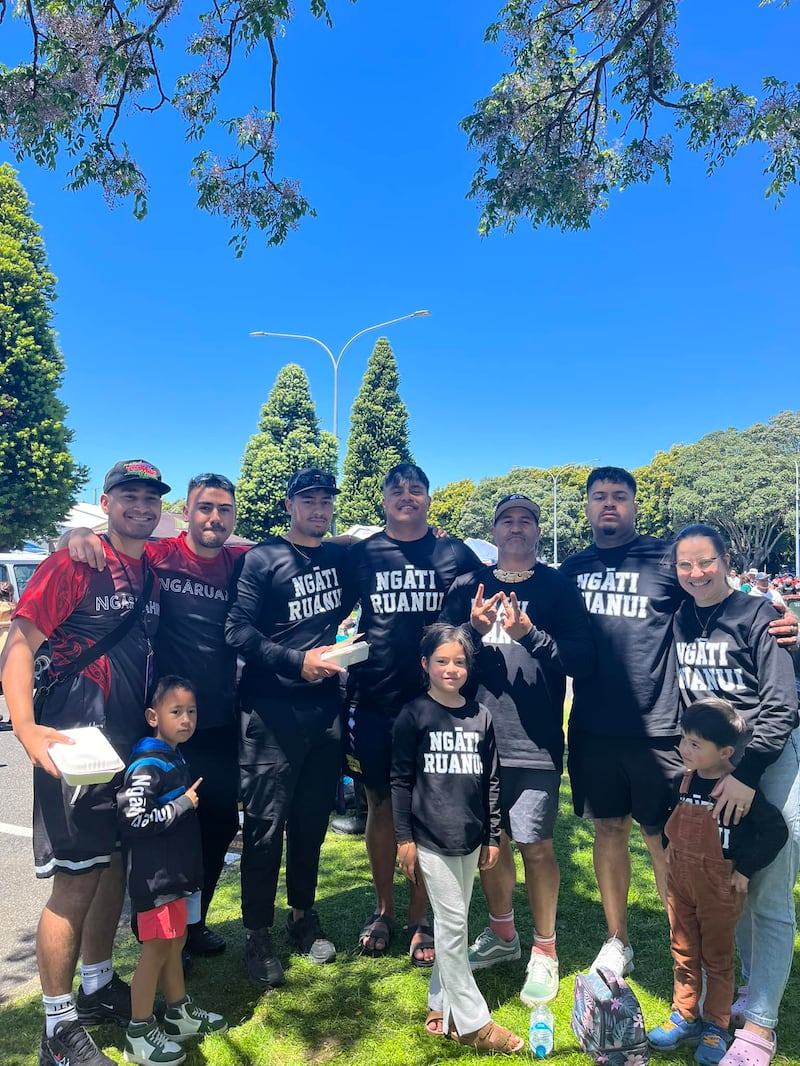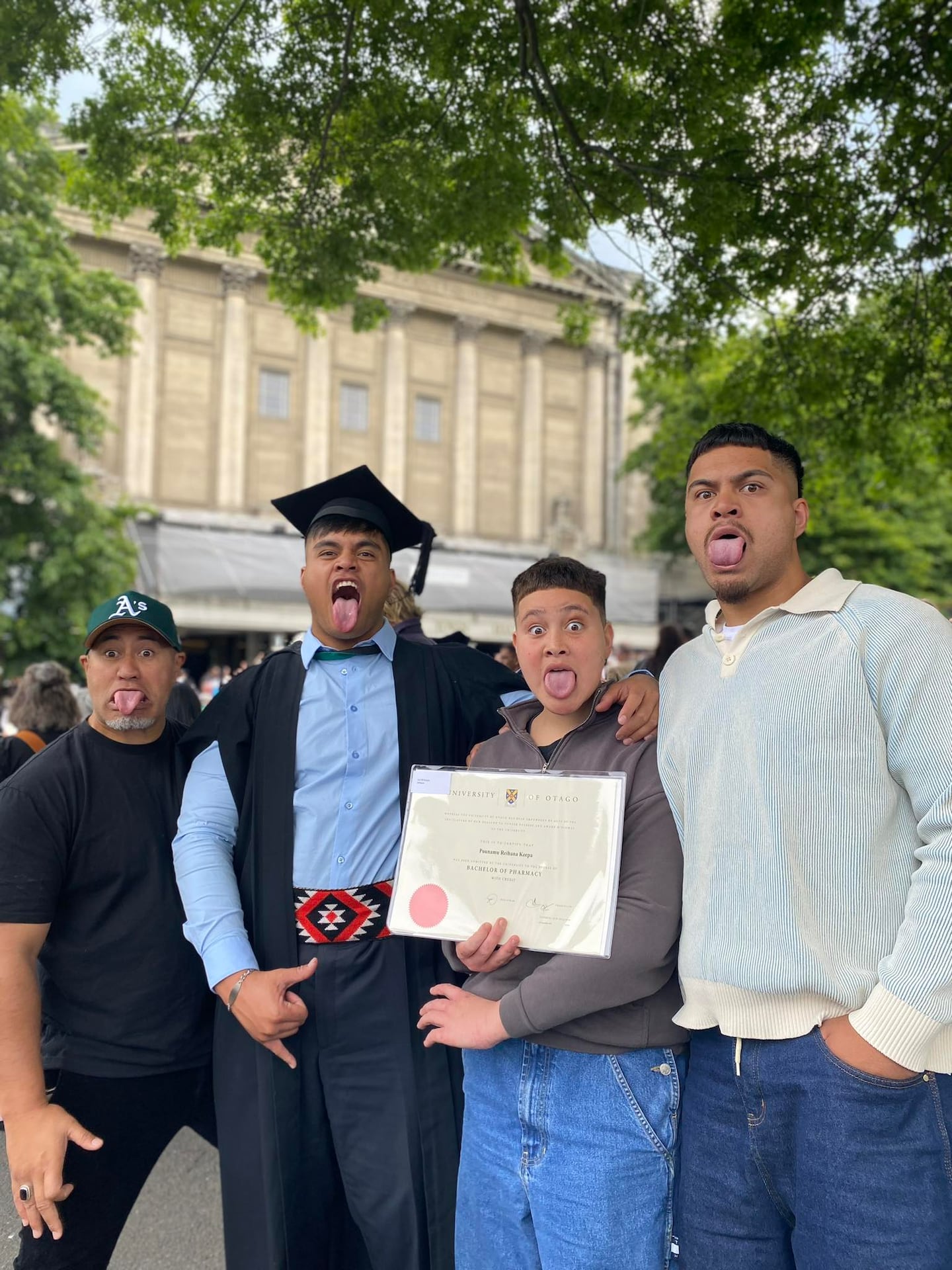Pounamu Keepa of Te Aitanga a Mahaki, Ngāti Ruanui, Tūhourangi and Ngāti Kahu hopes a familiar face behind the pharmacy counter will help improve the trust between whānau Māori and the health care system.
The 22-year-old recently graduated with a bachelor’s degree in pharmacy at Otago University. He says seeing a familiar face working in pharmacies throughout the country will help Māori whānau to better understand their medication treatment plans and other important information that some Māori struggle with.
“It can be quite hard for some of our whānau out there because I think it’s the trust and not really knowing what they’re taking,” Keepa says. It’s not really explained to them in a way that they can understand fully. And I think they have more trust in seeing Māori people, telling them how to take it, speaking to them in Māori or even talking to them in a way that’s normal for them.
“But it is quite hard to understand some of the things because of the medications. Some people will be on five or more medications, all of them have different names, they can’t remember what they’re for. And they don’t understand what it says and when to take it.”
‘One of our own back there’
“For example, at some of the placements I have done, at some pharmacies, with our Māori whānau coming in, they see me and their eyes light up a little bit. And I can see they’re thinking, ‘we have one of our own back there’. They see my Māori name, and some even speak Māori to me as well, which is not only cool for them but also cool for the people working in the pharmacy to see that. And, hopefully, it bridges the disconnection between Māori and the healthcare system, especially in pharmacies. There are not actually that many Māori pharmacists in Zealand,” Keepa says.
Keepa has been inspired by his father, Tuhakia Keepa, who has had an extensive career in the health sector.
“The inspiration comes from Dad. Dad worked at the Manukau District Health Board for a long time when I was a child. Dad helped to start Kia Ora Hauorā, and so he pushed me into the health space.
“Even from a young age I could see that Māori people, our whānau needed help with their health. And just being around that stuff when I was little, going into dad’s office and seeing stuff about our Pasifika whānau, Māori whānau. I’ve always been a science man and a math’s man. And I have always wanted to work in health.”
Māori pharmacists just 2% of industry
Keepa says that there were only four Māori enrolled on his intake at Otago University. Māori pharmacists represent just 2 per cent of the pharmacist workforce in New Zealand.
“It’s quite easy to get into a company here in New Zealand because there are plenty of openings for pharmacists. And Māori pharmacists as well. That’s a big plus for us.”
“University sounds a bit scary but it’s not. But it is real hard work. You get to help your people, and you get to inspire the younger generation as well. I’ve got little brothers and little cousins, and they look at me and see that I’m normalising going to university. My family is stoked for me,” Keepa says.
Keepa received financial assistance from different sources and was awarded the Ngāti Ruanui Education Grant, the Paranīnihi Ki Waitōtara Māori Land Trust Undergraduate Scholarship, and the Te Arawa Whānau Ora’s Ngaroma (Mala) Grant Memorial Scholarship.
“I definitely couldn’t have done most of the things that I’ve done at Otago University without their support. This year was quite a tough year. I went on placement for nine weeks of this year and half of that was out of town, so I needed some support for transport, accommodation, and other expenses. The scholarships and grants definitely helped,” Keepa says.

Keepa says that a large part of his final year in study was to memorise all the different medications and drugs that are dispensed over the pharmacy counter and learning all the legalities pertaining to medications and controlled drugs.
“We had to memorise all medications to a degree, so this year there were quite a few medications that I had to learn and memorise what they’re for, the side effects, the adverse effects, directions with other medications, safety precautions for quite a lot of medications, so that’s quite a big chunk of what we had to learn. It’s not expected for you to know everything about every single medication but most of the common ones definitely, and they’ve got different classes for different medications, so you’ll get a hint from the name, in terms of what it does. It’s hard though, it’s not easy.”
“I learned all of the legal side of things, like prescription and dispensing of medications, all the controlled drugs, there’s unapproved medication that we have to learn about and there’s certain rules that apply to those medications. The law is part of the degree, and we learn if it’s illegal or not illegal, we have to make sure it’s clinically correct, so there are quite a few things that we have to go through before even putting the medication in a bag and giving it to people,” Keepa says.
Keepa will spend the next two years becoming a fully registered pharmacist.


